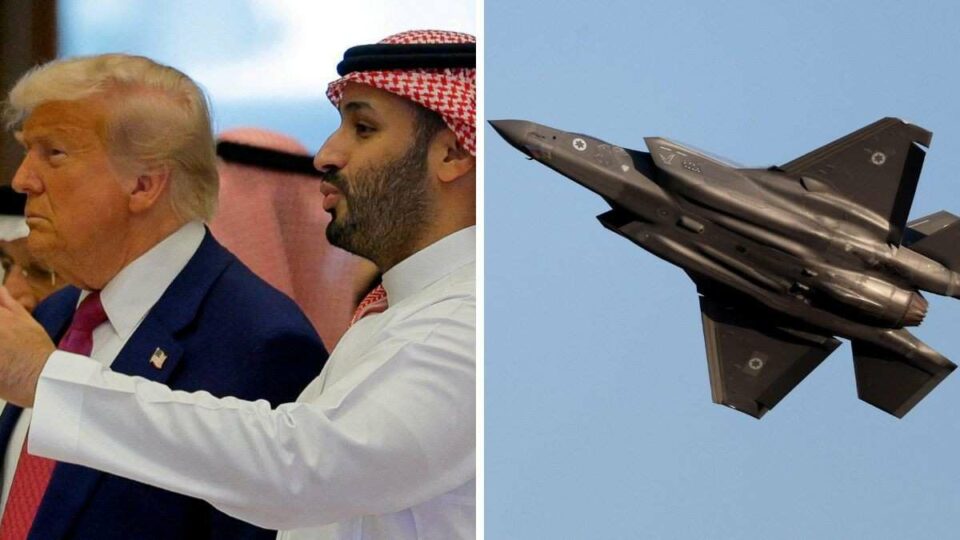U.S. and Saudi Arabia Forge Historic Partnership with F-35 Jets, $1 Trillion Investment, and Path to Abraham Accords
A transformative realignment is underway in U.S.-Saudi relations, marked by a potential landmark deal for F-35 stealth fighter jets, a monumental commitment of nearly $1 trillion in Saudi investments in the U.S., and significant progress toward Saudi inclusion in the Abraham Accords. This strategic reset, anchored by new defense agreements, signals a new era of deep cooperation between Washington and Riyadh.
F-35 Fighter Jet Deal: Reshaping Regional Security
In a historic shift in U.S. foreign policy, President Donald Trump has confirmed the sale of advanced F-35 stealth fighters to Saudi Arabia. This decision ends Israel’s long-standing regional monopoly on the aircraft and fundamentally alters the Middle East’s military balance. While the move has raised concerns among some U.S. officials about the potential risk of sensitive technology exposure to China, President Trump defended the sale, stating that Saudi Arabia deserves “top of the line” equipment. He also noted that Israel has been informed and is aware of the impending transfer.
A $1 Trillion Economic Partnership
Adding an immense economic dimension to this strategic pivot, Saudi Crown Prince Mohammed bin Salman announced a staggering increase in the kingdom’s U.S. investment target—from $600 billion to nearly $1 trillion. This capital is earmarked for future-focused sectors, including artificial intelligence, data centers, and advanced manufacturing, aligning with Saudi Arabia’s Vision 2030 to diversify its economy beyond oil. In a reciprocal gesture, the Trump administration indicated it would approve the sale of advanced semiconductor technology to the kingdom, further intertwining the two nations’ technological futures.
Path to Normalization: Abraham Accords and Palestinian Statehood
In a major diplomatic development, Crown Prince Mohammed bin Salman expressed conditional support for Saudi Arabia joining the Abraham Accords. His critical condition is that any normalization of relations with Israel must be linked to a “clear path” toward a Palestinian statehood. This stance maintains Riyadh’s longstanding commitment to the Palestinian cause while opening the door to a historic normalization of ties with Israel. Analysts caution, however, that the advanced military deal could reduce U.S. leverage to press Saudi Arabia for further concessions in the peace process.
Strategic Defense Alliance and Political Controversy
To solidify the renewed partnership, President Trump announced that Saudi Arabia will be formally designated a Major Non-NATO Ally, a status that streamlines defense cooperation and arms transfers. The leaders also signed a Strategic Defence Agreement aimed at enhancing regional deterrence and expanding opportunities for U.S. defense contractors in the kingdom.
This reset, however, is not without controversy. When questioned about the 2018 killing of journalist Jamal Khashoggi, the Crown Prince called it a “painful” “huge mistake,” while President Trump declined to assign direct blame, remarking that “things happen.” Additionally, the F-35 sale continues to provoke debate over its impact on maintaining Israel’s Qualitative Military Edge, a cornerstone of U.S. policy in the region.
Implications for the Middle East and Beyond
This comprehensive U.S.-Saudi reset has profound implications:
-
Strategic Shift: The relationship is evolving from a primarily oil-based partnership to a multi-faceted alliance encompassing security, technology, and diplomacy.
-
Economic Transformation: Saudi Arabia’s massive investment pledge accelerates its transition into a hub for AI and advanced technology.
-
Diplomatic Gambit: The conditional support for the Abraham Accords presents a potential breakthrough for Middle East peace, albeit with significant hurdles remaining.
In conclusion, the unfolding U.S.-Saudi partnership represents one of the most significant geopolitical developments in recent years. By combining advanced weaponry, unprecedented economic investment, and cautious diplomatic outreach, both nations are betting on a deeply integrated future. The success of this ambitious reset will hinge on their ability to navigate the complex political, ethical, and strategic challenges that lie ahead.

